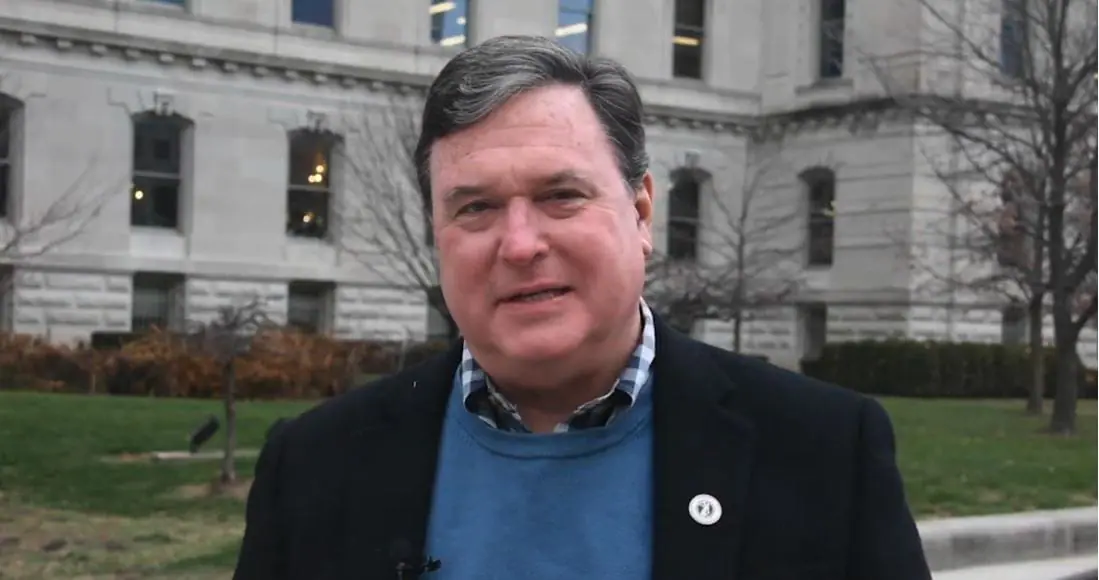AG Rokita threatens legal action against locals with ‘sanctuary city’ laws on the books
(INDIANA CAPITAL CHRONICLE) — Indiana Attorney General Todd Rokita on Friday publicly threatened four local units of government with legal action unless they repeal so-called “sanctuary city” ordinances by July.
Lawmakers last session gave his office the power to enforce a state ban on local policies that restrict immigration-related cooperation with federal authorities..
“The flood of illegal immigrants entering the United States is a problem that harms all of us,” Rokita said in a news release. “The ones paying the price for this lawlessness are Hoosier taxpayers, who must bear increased costs for health care, education and other services used by illegal immigrants.”
His office said it sent letters to East Chicago, Gary, West Lafayette and Monroe County.
In a letter to the East Chicago Common Council, dated May 14, Rokita asked if a “welcoming city” ordinance was still in effect and said a repeal was due by July 1.
That’s because, in Senate Enrolled Act 181, lawmakers empowered Rokita’s office to enforce a 13-year-old “sanctuary city” ban.
Indiana Code has long barred local governments and their employees from refusing to communicate or cooperate with federal immigration authorities about the immigration status — lawful or unlawful — of an individual.
The General Assembly approved that ban in 2011, but it didn’t stop some local units from passing “sanctuary city” ordinances.
Last session’s proposal came after Indiana’s two highest courts dismissed, for lack of standing, resident-led lawsuits against two cities. The law goes into effect July 1.
After that day, Rokita warned East Chicago and the other units, “I will be statutorily required to bring an action to compel the city … to comply … .” Having an ordinance still on the books would constitute probable cause, he added.
East Chicago declined to comment, while Monroe County didn’t immediately respond to a request for comment.
In a statement, Gary Mayor Eddie Melton asked Rokita to “help us out or leave us alone.”
Melton described Gary’s “welcoming city” ordinance as “thoroughly litigated and upheld by the Indiana Supreme Court” but said he’d work with the city’s lawmakers to address the legal threat.
“It is unfortunate that we continue to see laws passed … that target Gary. All the issues associated with these laws predate my administration, but the laws do nothing to help me move the city or the state of Indiana forward,” said Melton, a former state lawmaker who assumed the mayor’s office in January.
“As Mayor of Gary, all I want is to create opportunities for my community to flourish. Unfortunately, within the first six months of my administration we have repeatedly experienced unwarranted attacks and been dragged into national political debates around immigration and guns,” he continued. “These distractions take away from the hard work the Governor and I are doing together to rebuild the City of Gary.”
West Lafayette Common Council President Larry Leverenz said via email that he was out of the country and hadn’t seen Rokita’s letter.
A potential political opponent, meanwhile, criticized Rokita’s actions.
Destiny Wells, an Indiana Democratic Party executive, lawyer and veteran, called Rokita’s approach to immigration “divisive and detrimental to the unity and safety of our communities.” She is running for the nomination to face Rokita in the fall.
“As Attorney General, I will not attack localities for making decisions best suited for their unique circumstances,” Wells said in a news release. “Immigration policy is fundamentally a federal issue, and I will provide the latitude for federal authorities to address these matters appropriately. If the federal government asks for our assistance, we will assist within our duties. However, we will not go looking to use our statutory authorities to meddle in local affairs.”
“We must find a balance that respects the rule of law, supports our federal partners, and honors the autonomy of our local communities,” she added. “Hoosier taxpayers deserve policies that are both just and effective, not political grandstanding that jeopardizes our unity and safety.”
